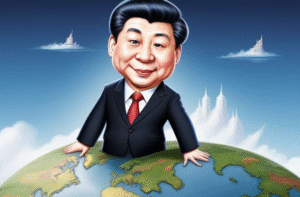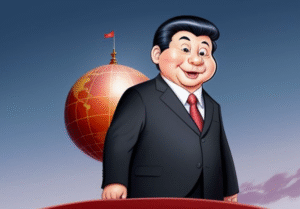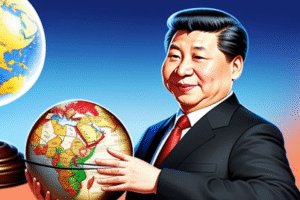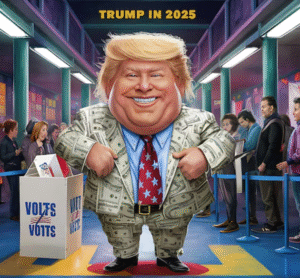$BA #TradeDeals #Boeing #Tariffs #USPolitics #GlobalTrade #EconomicStrategy #Geopolitics #Aviation #StockMarket #InternationalRelations
Why Do Trump’s Trade Deals Favor Boeing Planes? Uncover the Strategic Reasons!
In the wake of President Trump’s tariff announcements in April, a discernible trend has become apparent. Nations that enter into trade agreements with the United States frequently proceed to place substantial orders for Boeing aircraft. This observation raises intriguing questions about the intersection of economic policies and corporate benefits in international trade dynamics.
Exploring the Link Between Trade Agreements and Boeing Orders
The phenomenon of countries engaging in significant Boeing purchases post-trade agreements can be seen as a multifaceted strategy. On one hand, these purchases are possibly performative news, crafted to symbolize the strength and mutual benefits of the new trade relationships. On the other, they reflect a pragmatic approach to solidifying diplomatic ties, with Boeing acting as a cornerstone of American industrial might.
Moreover, the strategic importance of these deals extends beyond mere corporate profit. They also serve as a lever in broader geopolitical maneuvers, enhancing the U.S.’s influence in global affairs. This tactic not only supports a key American industry but also positions the U.S. as a pivotal player in the aviation sector, crucial for both military and commercial capabilities globally.
The Economic Implications of Favoring Boeing in Trade Deals
Favoring Boeing in trade negotiations certainly sends a strong signal to international markets and allies alike. It emphasizes the role of American exports in balancing trade deficits—a key focus of Trump’s economic strategy. Furthermore, these deals often lead to job creation and economic stimulation within the U.S., aligning with the administration’s commitment to American manufacturing and industry.
Additionally, the strategic placement of Boeing in trade agreements can be interpreted as a tactical move to counteract the competitive pressures from foreign aircraft manufacturers like Airbus. By intertwining Boeing’s fortunes with diplomatic engagements, the U.S. ensures sustained business flow to one of its largest exporters, securing economic interests at multiple levels.
Global Responses and Future Outlook
Internationally, the pattern of Boeing-centric trade deals has prompted mixed reactions. While some nations view this as an opportunity to modernize and expand their aviation capabilities, others perceive it as a stark illustration of America’s transactional approach to diplomacy. The long-term effects of this strategy remain to be seen, especially as global trade frameworks evolve and new economic powers emerge on the world stage.
In conclusion, the recurring theme of Boeing deals in U.S. trade agreements under Trump’s administration underscores a complex tapestry of economic, political, and strategic objectives. As the global economic landscape shifts, the role of major corporations in these geopolitical chess games will undoubtedly continue to provoke debate and shape international relations.
Understanding these dynamics offers a significant window into the mechanics of modern economic diplomacy, where corporate power and national interests are increasingly intertwined, shaping the future of global trade and economic policies.











Comments are closed.